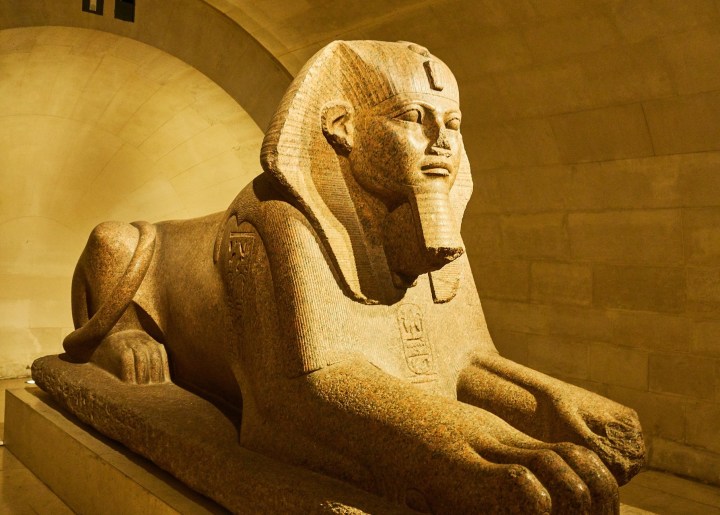In its relationship with Africa, even after slavery and the slave trade, Europe has provably been moved by a certain paternalism, anchored to some sense of incorrigibility.
It is quite banal to point out the ways in which this attitude plays out. Whether it is Germany’s diplomatic contortionism about what it did in southern Africa or Emmanuel Macron telling the world Africa’s problems are due to its defective civilisation, Europeans have done it all.
Even when the TV presenter, Jeremy Paxman, went globetrotting on behalf of the BBC to discuss how the British empire had shaped the modern day, he was visibly worried that not more people were willing to say colonisation did “some good”.
But where this uniquely European posture plays out, more than other places, is in the matter of who has the right to those artifacts that were looted out of Africa.
During the heydays of European exploitation, its superpowers took what is on African land as European possessions. And so were the things that came from African minds and hands.
From the 19th century, what began as souvenir collection soon turned into ownership by force. Hundreds of thousands of concrete symbolisations of the African way of life were taken.
There is even a less-discussed angle to the debate about how the deconsecration of many of the symbols fed into the distortion of the African identity.

For instance, most 19th century Europeans will not be open to the commercialisation or the treating of Christian iconography as simple artworks. It means more to them – but that courtesy was not extended to Africans.
In museums and universities across Europe, these artifacts are serving the purposes of tourism and education.
It would seem almost every country on the continent was a victim of the grand loot. But it is not even clear which country lost more although Egypt should hover around the top.
Quartz Africa notes that there are over 430,000 pieces of indigenous African artworks shared among some top museums in France, Germany, Belgium, Austria, and the UK.
In 2018, the French government released the report by a commission it had set up to investigate the matter. Senegalese economist Felwine Sarr and French historian Bénédicte Savoy concluded that some 90% of known material arts of ancient Africa is outside the continent.
It was the first time the weight of the matter had been put into a quantifiable perspective. Yet, for those who had hopes that restitution would be quickened, they have been disappointed.
What has rather happened is the loudening of the fears of those who are shaken by what may come of these European museums once restitution is made.
And this is one of the reasons Europe is not looking to do what is right anytime soon. What happens to the British Museum if it had to give over to Egypt all the things that are rightfully Egypt’s?
But one of the restitution report’s authors, Savoy, explained what should concern those who have such fears, in an interview last year: “…Our work consisted of dealing with restitution. We feel the term is important, because it allows a reflection on legitimate property, on the history of objects and how they came here.”
There is, many people feel, a much-needed reckoning Europe is avoiding. Acknowledging that these items were stolen, is not enough but the cost of fairness gives them a hard time.
Another of the arguments that have been pushed as to why the artifacts should still be owned by Europe is that European museums take better care of some of these crafts made fragile by the wears and tears of time.
On the face of it, this seems to make some sense. Many of Africa’s museums are understaffed and underequipped.
But this point was dealt its heaviest blow earlier this year by German newspaper, Süddeutsche Zeitung. The paper found that African arts in the Ethnological Museum of Berlin had been treated quite shabbily.
The paper captured that some works had been kept in flooded storage rooms and atmospheres of toxic dust. But the museum, which closed in 2017 in order to move to a new building, said this was not the way they have always done things.
At the time, the museum’s overseer, Lars-Christian Koch, said: “We are not saying we are living in a perfect world. We definitely know what we are doing and how to take care of the objects. We have our difficulties but we are opening up the whole situation and we are being transparent.”
This may be forgivable except the Ethnological Museum in Berlin is one of the more heavily-funded in Germany.
And what would have been the world’s reaction to an African museum’s ill-treatment of ancient artworks that it had guilted Europe into handing over?
But there is yet, one more of the arguments that seek to keep the artifacts outside Africa.
Many scholars and proponents of the universality of education have pointed out that the home of the works does not matter much. They would rather people focused on what we learn from them.

This faux-philosophic exhortation looks away from the global multibillion-dollar fact of millions traveling to see and learn about sculptures, paintings, writings and inventions in museums.
In similar fashion, some European museums like the British Museum in London, have called for cooperation agreements that would see artifacts loaned to Africans. Permanent relocation of the artifacts to their original home does not interest the Europeans.
Occasionally, however, some things are permanently returned at a ceremony where the Africans speak of a historic day and the European envoy promises cooperation going forward. And that’s that.
The problem here, as with most of the things between Africa and Europe, is a moral one. The solution may, admittedly, not be clear-cut because most African countries are currently not in a place to receive what they ask for.
But what Europeans are willing to tell themselves about this issue is of the most critical relevance.










